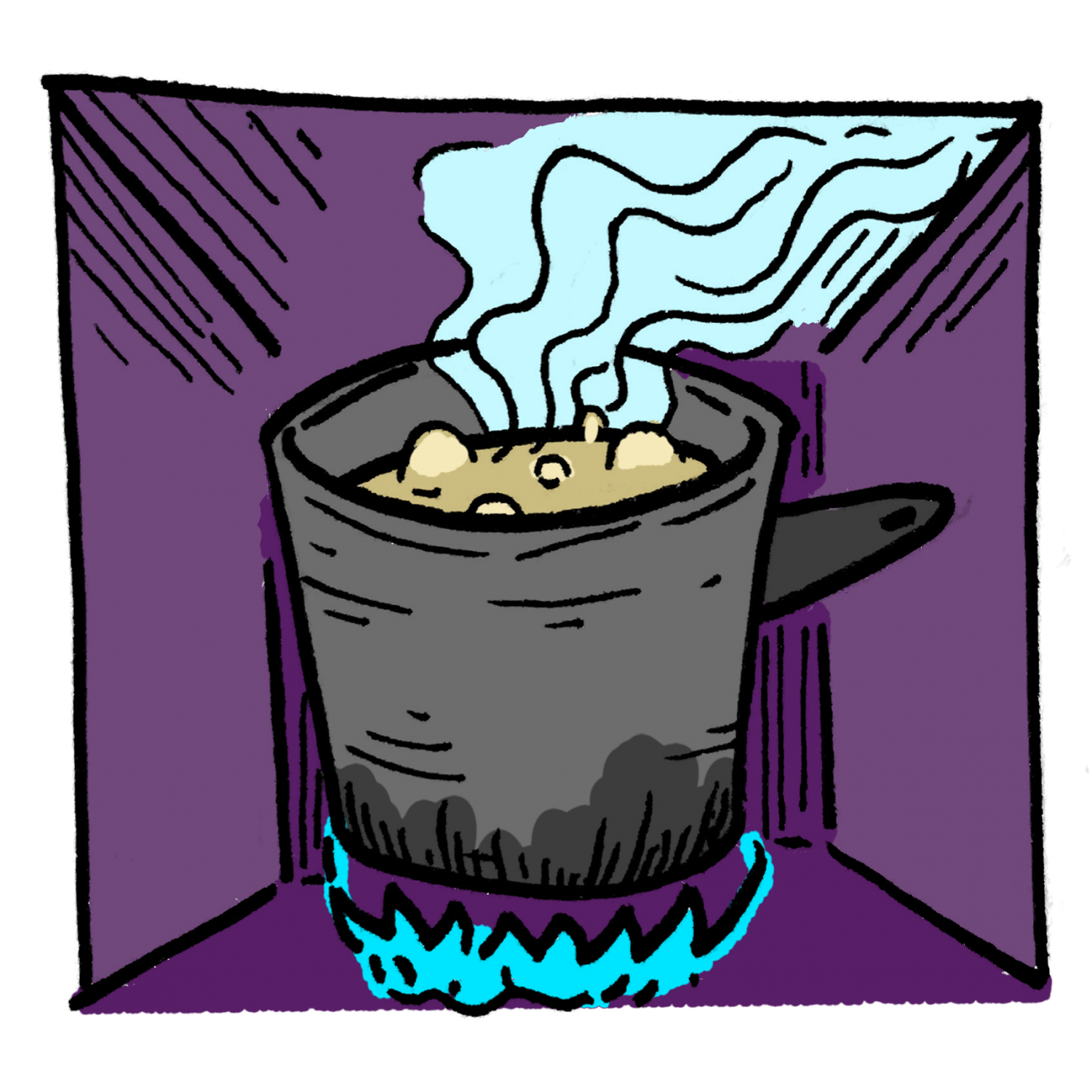The Quarantine Cookbook: Frying up my mother’s pfannkuchen


Not only is pfannkuchen very fun to say, it’s also delicious, easy to make and pairs well with dozens of toppings. This German pancake consists of simple ingredients that everyone is sure to have on hand.
My mother, a German citizen, grew up eating pfannkuchen as a child and made them for me and my sister when we were younger. They’re thinner than American pancakes but thicker than crepes, mildly sweet and a little crisp on the edges. I figured my mother’s basic recipe would appeal to my fellow college students who are also stuck inside and running out of new meals to make, but lack cooking experience and access to fancy ingredients.
The best aspect of pfannkuchen is that you’re allowed to put anything on it to eat for breakfast, lunch or dinner. My mother will put jelly on her pfannkuchen before rolling it up for lunch. Nutella, honey and cinnamon sugar are also favorites in Germany. Popular savory toppings include deli meats, cheese, fish and various vegetables and spreads. Feel free to experiment and make a crepe-like taco or PB&J out of it — the possibilities are endless.
Total cook time: 25 minutes
Servings: Depends on how big a pan you use and how thick or thin you want your pfannkuchen to be. I used a 10-inch pan and 1/2 cup of batter with this recipe to make seven servings of medium-thin pfannkuchen. For thinner pancakes, use a larger pan and/or smaller amounts of batter, and a smaller pan and/or larger amounts of batter for thicker ones.
Ingredients:
250 g mehl (about ¾ cup flour)
*It’s recommended but not required that you run the flour through a sieve
Drei eier (three eggs)
½ ltr milch (about 2 ⅛ cup milk)
½ tl salz (½ teaspoon salt)
Olive oil, butter or margarine for the pan
Directions:
Step 1: Pour the flour into a large bowl and make a well in the center. Add the milk, eggs and salt to the well.
Step 2: Combine ingredients using an electric mixer or by vigorously whisking for a few minutes. The batter should be a lot runnier than American pancake batter.
Step 3: Place a pan over low-medium heat and add olive oil, butter or margarine. Make sure to add a little more in between frying individual cakes so the batter doesn’t start sticking to the pan.
Step 4: Ladle *just enough* batter into the pan so that it spreads out across the entire surface — depending on pan size, this is usually somewhere between ¼ to ½ a cup. Pfannkuchen are traditionally large and thin, like crepes. However, you can add extra batter to make them thicker if you want.
Step 5: Fry each side for two or three minutes until properly cooked. I like my pfannkuchen brown, but they should be at least golden brown. Make sure to pay close attention so they don’t burn.
Step 6: Spread whatever you want on the finished pfannkuchen. Go absolutely insane with toppings. Nutella and bananas. Smoked salmon and chives. Peanut butter and jelly. Mushrooms and cheese. You’re unstoppable.
Step 7: Fold the left and right side of the pfannkuchen inward and then roll towards the middle. Guten Apetit!
Recent Posts
Opinion | Final thoughts
Senior staff columnist Emily O’Neil discusses her final experiences at college and how the time…
Opinion | How to have a resisting-fascism summer
Contributing editor Emma Hannan talks about ways you can stay politically active while not in…
Who Asked? // What comes next?
This installment of Who Asked? by senior staff writer Brynn Murawski faces an uncertain future.
A Good Hill to Die On // Goodbye
In the final edition of “A Good Hill to Die On,” I decided to rant.
Review | Delayed checkouts at ‘The White Lotus’: An unoriginal third season
(Contains Spoilers) There is no meditation class, no reiki session, no nutritionally balanced, organic food…
